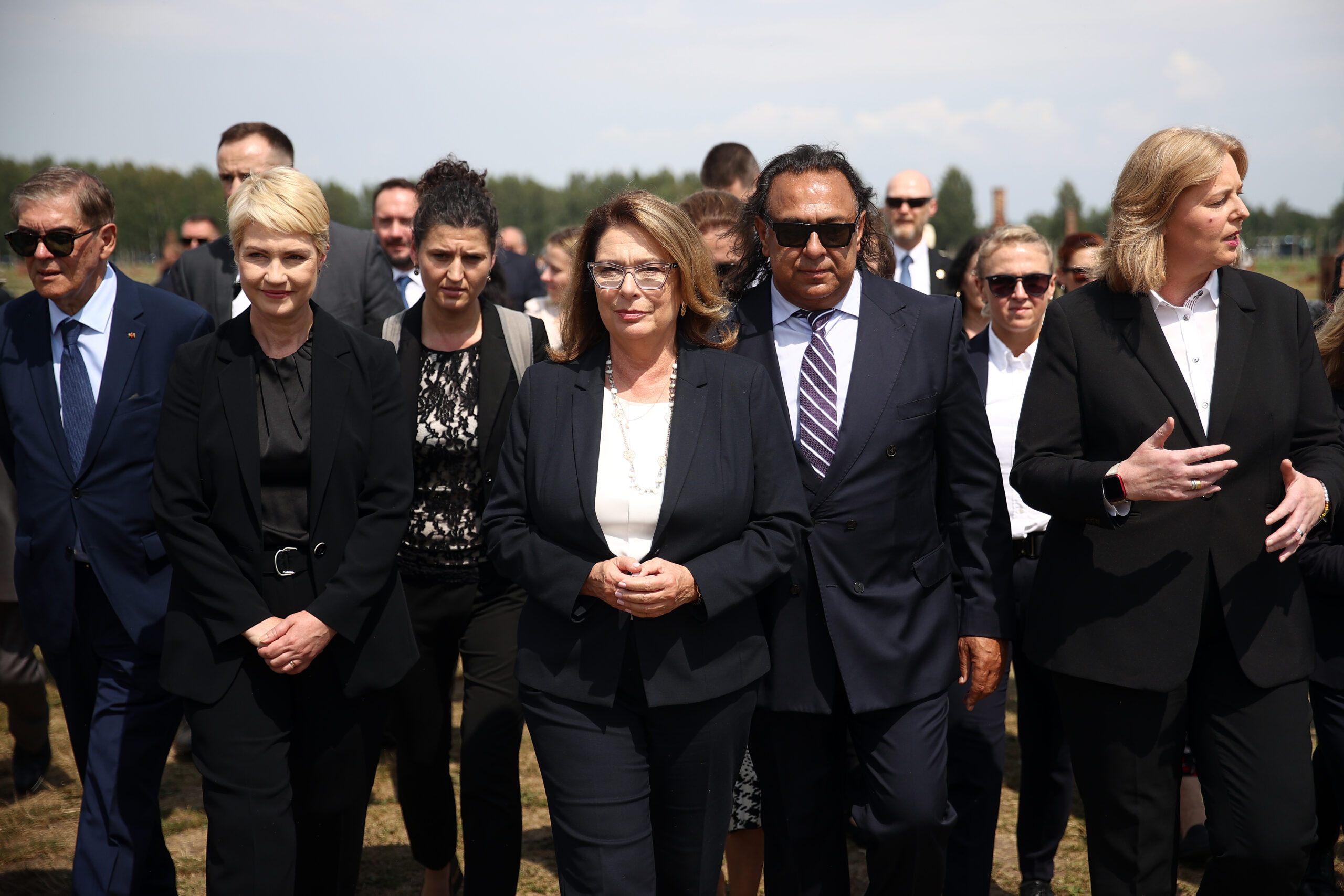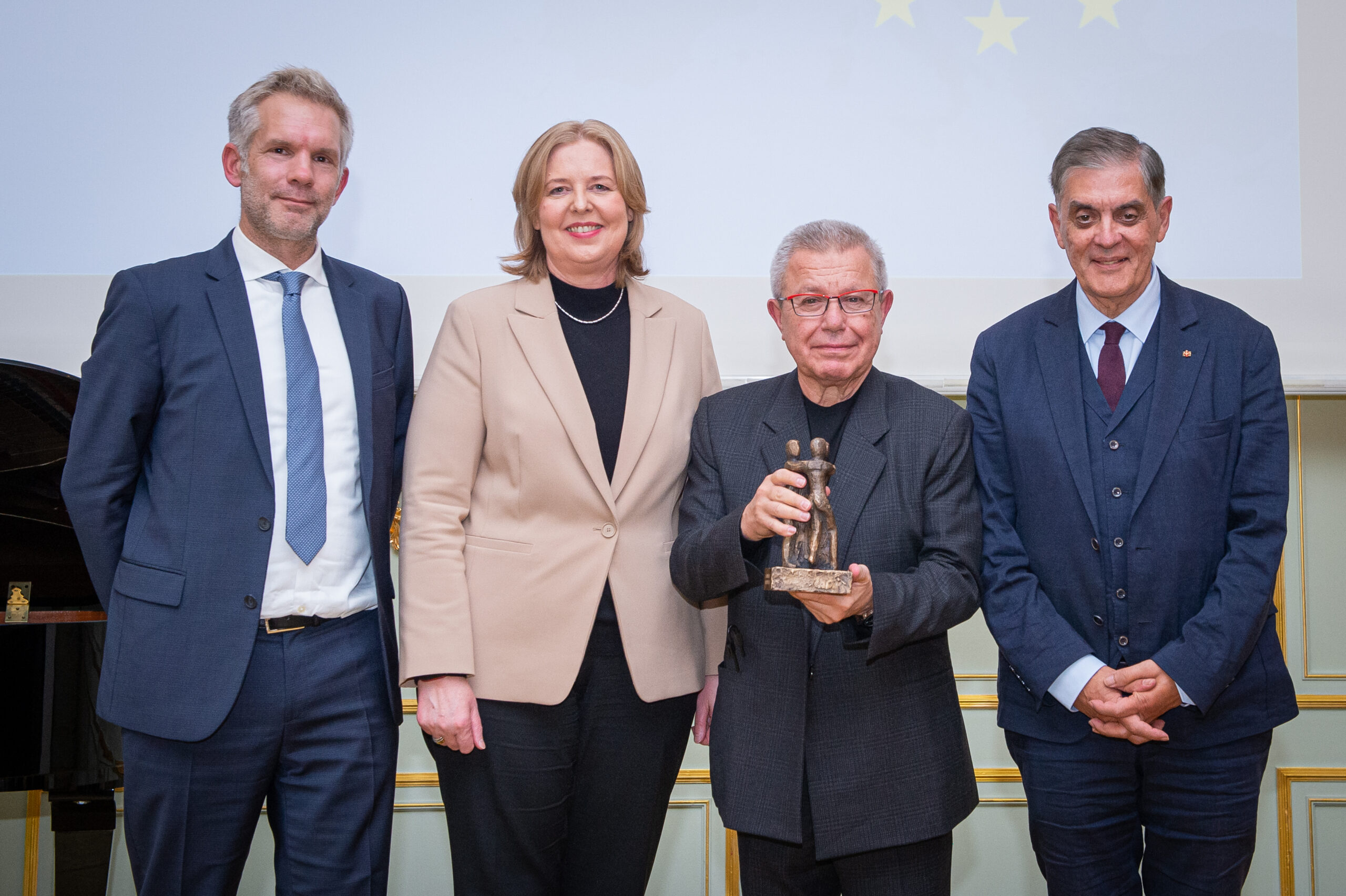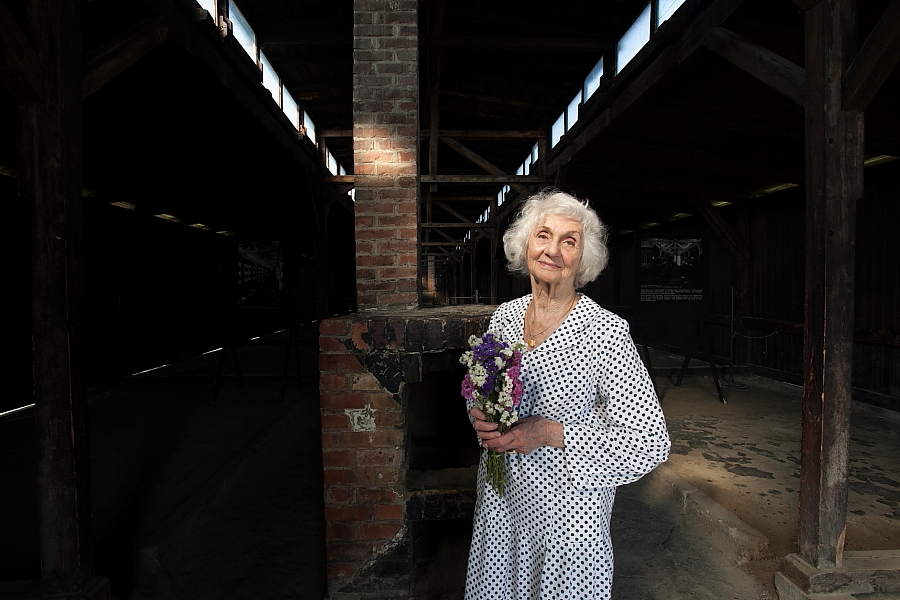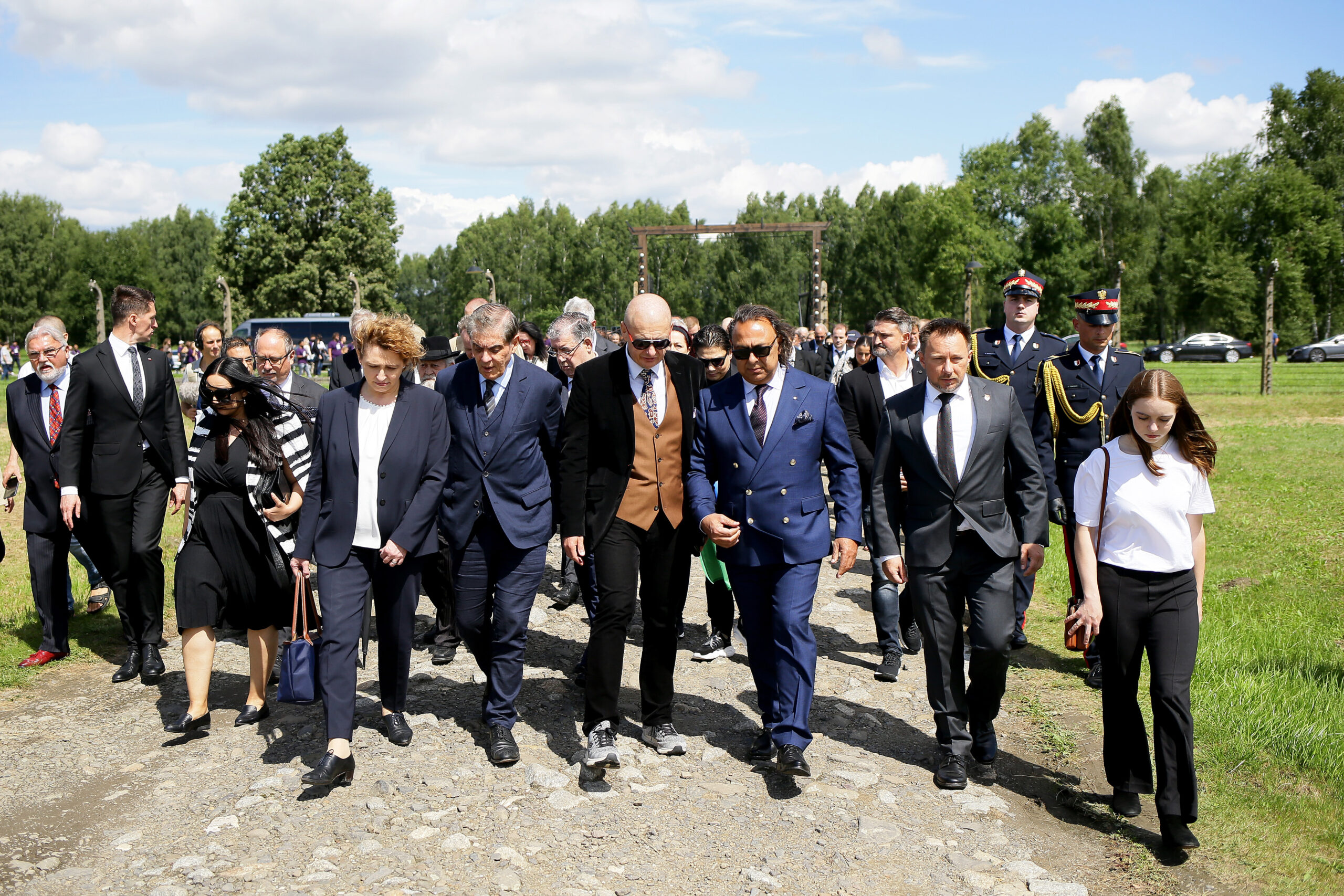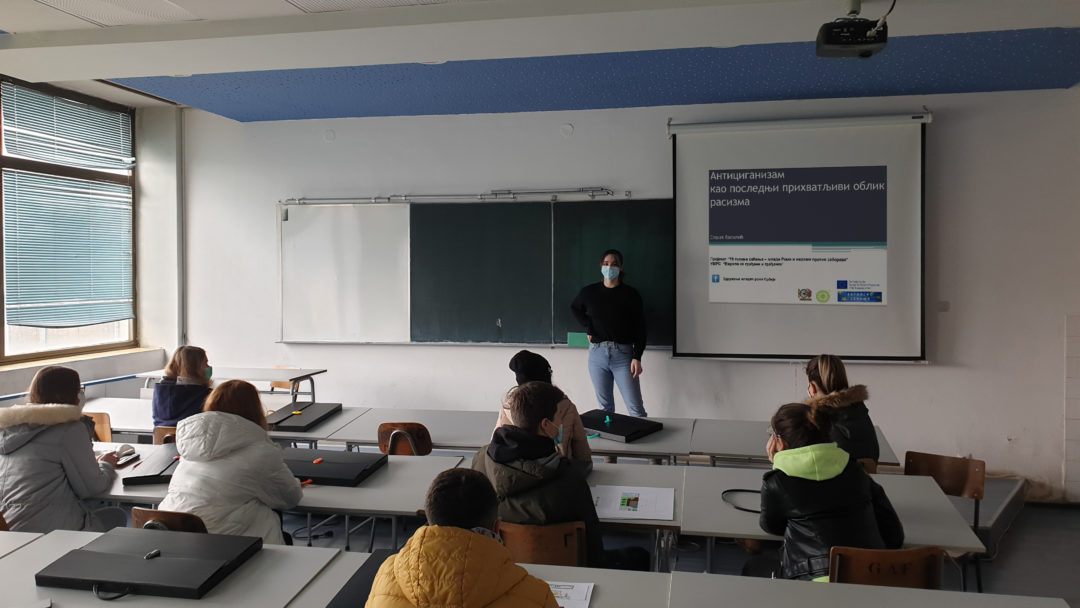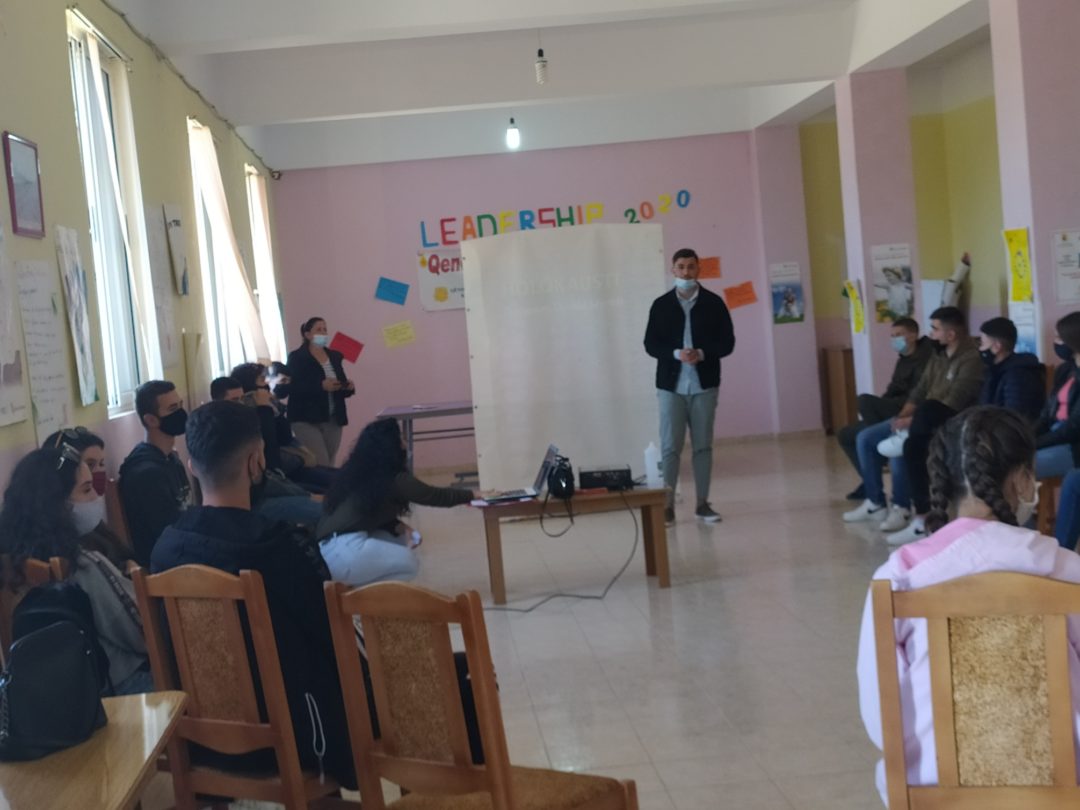Asociatia Nevo Parudimos, together with the Documentation and Cultural Center of German Sinti and Roma, hosted an international conference as a final dissemination event of the project “75 Years of Memory – Young Roma and non-Roma Act Against Forgetting” supported by the Europe for Citizens program. The conference took place in Heidelberg, Germany between December 5 and December 8, 2021 with 23 people from different countries and backgrounds in attendance.
The conference aimed to disseminate the overall project results, each partner countries’ work and its results on a local level, an experts’ discussion on the importance of Holocaust Education and the approach in different countries to support the project results. Furthermore, it intended to strengthen the partnership for further projects and create alliances on Roma Remembrance for the new CERV program.
The project 75 Years of Memory – Young Roma and non-Roma Act Against Forgetting has aimed to raise awareness on the Roma Holocaust focusing on the events which took place in the Balkans, Hungary and Transnistria before, during and after World War Two in order to preserve the memory of Sinti and Roma victims of Nazism. This project has strengthened the capacity of educators, citizens and a wide network of civil society organizations to lead educational and citizens’ initiatives for remembrance and education on local, national and European levels.
It has revealed under-researched areas of the Roma Holocaust to the wider public; it stimulates debates about our culture of remembrance by and with Roma communities with a focus on the role of young people now and in the future to preserve our European memory.
The project has brought together eight partner organizations from Romania, Serbia, Albania, Greece, the Republic of North Macedonia, Germany, Hungary and Bulgaria. Each partner had the responsibility of implementing 20 different workshops in their country to raise awareness on the Roma Holocaust among young people.
As the final event, the international conference has focused on the visibility for the project, project results and the results of each partner countries’ work during the two years of the project duration. The first day of the conference started with a welcome speech delivered by Mr. Emran Elmazi from the Documentation and Cultural Center of German Sinti and Roma, which was followed by Mr. Iulian Paraschiv from the National Roma Agency for Roma in Romania presenting a message from the Romanian Government. Afterwards, Mr. Daniel Grebeldinger, the project manager, presented the project and its overall results and gave the floor to each partner country to present their own results.
Later, Mr. Adrian Furtuna, the author of the book “The Deportation of Roma soldiers’ families to Transnistria” presented his study, which was published by the project “75 Years of Memory – Young Roma and non-Roma Act Against Forgetting”. The conference continued with Mr. Marian Daragiu, State Secretary in the Ministry of Education of Romania, talking about the importance of Holocaust education for Roma kids and young people and gave information on the approach of the Romanian Government on this specific topic. Finally, a panel discussion with experts on Holocaust Education in different countries took place. We hosted five experts: Mr. Milovan Pisarri, Mr. Kai Muller, Mr. Srdzan Amet, Mr. Adrian Furtuna and Mr. Yiannis Georgiu.
On the second day of the conference, we hosted Mr. Alexander Boning, contact person of the program “Citizens, Equality, Rights and Values (CERV)” in Germany. Mr. Boning presented the upcoming opportunities for Roma Remembrance in order for us to better understand the program and its various opportunities for further projects together. Afterwards, we hosted Mr. Jonathan Mack as board member of the EVZ (Foundation Remembrance, Responsibility and Future), who informed us about the opportunities given by the EVZ Foundation for Roma Holocaust Education and Remembrance as well as for the survivors of the Holocaust.
Later, all the partners had a small roundtable meeting on new project ideas for future collaborations and ways to improve the work each had done in their respective countries regarding Holocaust Education. After lunch, we hosted Ms. Lore Georg, a Holocaust survivor, who shared her memories and experiences during those grueling times with us. Finally, we visited the museum of the Documentation and Cultural Center of German Sinti and Roma and had a small commemoration event.
With this international conference, we are closing our project, managing to reach the expected results in all partner countries thanks to the local workshops, the newly created and gathered educational materials on Holocaust Education and the published studies and books. We have prepared a recommendation paper on the importance of including information on the Roma Holocaust, human rights, antigypsyism and minority rights into the school curricula as well as remembrance events and conferences with young people.
